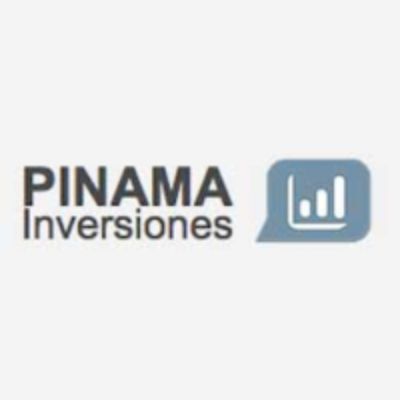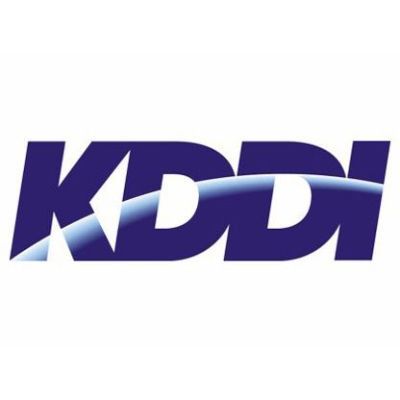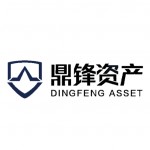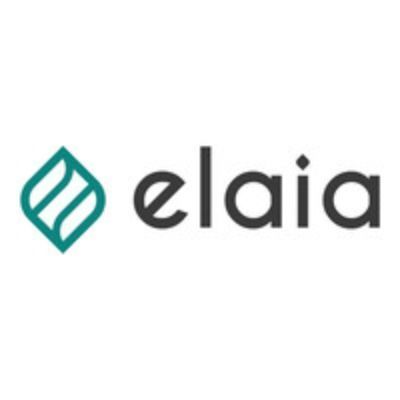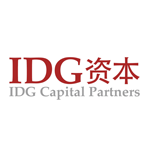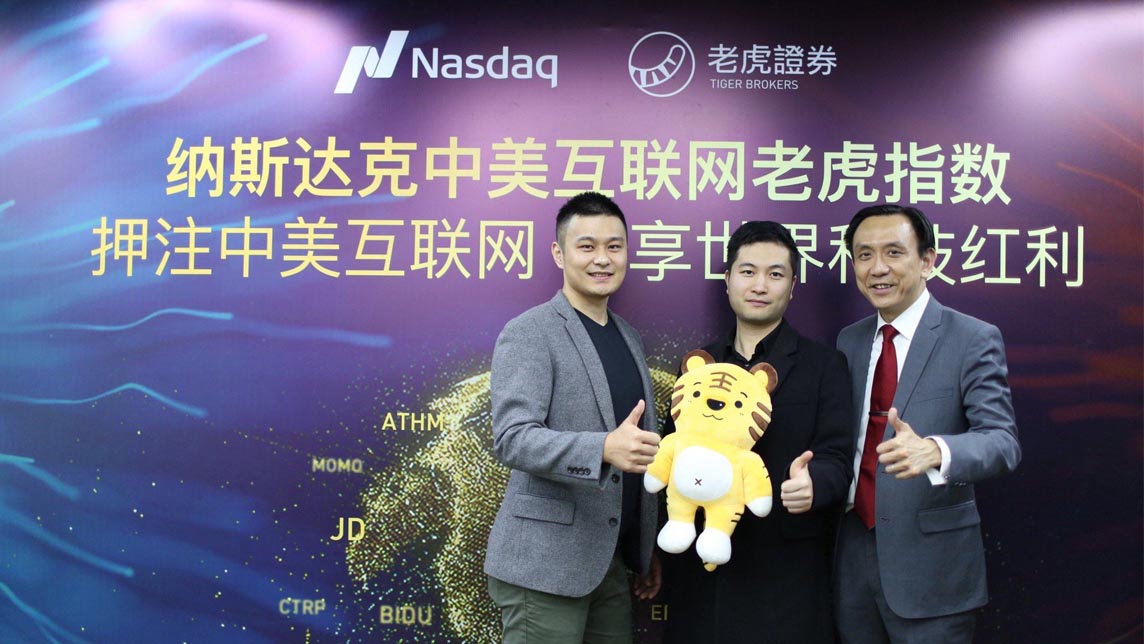Shenzhen Capital Group
-
DATABASE (996)
-
ARTICLES (525)
Pinama Investments is a Madrid-based club of investors that has invested across a range of sectors and technologies. It has conducted two selection rounds to date, in 2013 and 2017. The group looks for scaleable opportunities that help its portfolio companies derive synergies among themselves so that they potentially collaborate with, and become customers of, one another. The firm has seen one exit to date.
Pinama Investments is a Madrid-based club of investors that has invested across a range of sectors and technologies. It has conducted two selection rounds to date, in 2013 and 2017. The group looks for scaleable opportunities that help its portfolio companies derive synergies among themselves so that they potentially collaborate with, and become customers of, one another. The firm has seen one exit to date.
Founded in 1986 by global industrialist and philanthropist Len Blavatnik, Access Industries is a privately held industrial group with long-term holdings worldwide. It is headquartered in New York City with additional offices in London and Moscow. In 2015, Access Industries established Access Technology Ventures which has invested in Snapchat, Yelp, Alibaba, Spotify, etc.
Founded in 1986 by global industrialist and philanthropist Len Blavatnik, Access Industries is a privately held industrial group with long-term holdings worldwide. It is headquartered in New York City with additional offices in London and Moscow. In 2015, Access Industries established Access Technology Ventures which has invested in Snapchat, Yelp, Alibaba, Spotify, etc.
KDDI Open Innovation Fund is a joint corporate VC operated by Japanese telecommunications firm KDDI and investment firm Global Brain. It forms one part of KDDI's venture programs, the other being a Japan-only accelerator program, KDDI Infinity Labo. With the support of other companies in the group, such as au Financial Holdings and Soracom, KDDI is able to provide extensive and relevant support to its portfolio companies.
KDDI Open Innovation Fund is a joint corporate VC operated by Japanese telecommunications firm KDDI and investment firm Global Brain. It forms one part of KDDI's venture programs, the other being a Japan-only accelerator program, KDDI Infinity Labo. With the support of other companies in the group, such as au Financial Holdings and Soracom, KDDI is able to provide extensive and relevant support to its portfolio companies.
Bright Pixel is a Portuguese company of angel investors, established in 2016, owned by the investment division of one of Portugal's largest companies, retailer Sonae Group.To date, it has invested in six companies at the early-stage. Its most recent investments include in the €2m seed round of US security tech Fyde and in the €550,000 seed round of Portuguese online security tech Probely.
Bright Pixel is a Portuguese company of angel investors, established in 2016, owned by the investment division of one of Portugal's largest companies, retailer Sonae Group.To date, it has invested in six companies at the early-stage. Its most recent investments include in the €2m seed round of US security tech Fyde and in the €550,000 seed round of Portuguese online security tech Probely.
Enlightened Hospitality Investments (EHI)
Enlightened Hospitality Investments (EHI) is a New York-based growth fund launched by Danny Meyer and his Union Square Hospitality Group (USHG). The fund leverages USHG's network of chefs, IT, marketers, and industry experts.Active since the early ’90s, it currently has $220m under management. To date, EHI has made eight investments bringing technology into the hospitality sector through companies operating in the food and beverage space.
Enlightened Hospitality Investments (EHI) is a New York-based growth fund launched by Danny Meyer and his Union Square Hospitality Group (USHG). The fund leverages USHG's network of chefs, IT, marketers, and industry experts.Active since the early ’90s, it currently has $220m under management. To date, EHI has made eight investments bringing technology into the hospitality sector through companies operating in the food and beverage space.
CEO and co-founder of OLIO
Tessa Clarke is the British CEO and co-founder of food-sharing app OLIO that was inspired by her experience of having to throw away perfectly good unused food when she was packing up to move from Switzerland back to the UK in 2014.After graduating with a first-class degree in social and political sciences at the University of Cambridge in UK in 1997, she worked for three years at the Boston Consulting Group as a junior associate. She joined an MBA program at Stanford University Graduate School of Business in 2002 and met Saasha Celestial-One, who was also studying for an MBA at Stanford. In 2015, Clarke and Celestial-One decided to use their savings to create a food-sharing app OLIO after successfully testing the idea as a private WhatsApp group in North London.Before becoming an entrepreneur in 2015, Clarke has held various senior management roles since completing her MBA in 2004. She worked for global business publisher EMAP from 2005 until 2009, when she joined Dyson Inc as e-commerce managing director (MD). In 2013, she left Dyson to become MD of fintech PayLater based in Switzerland run by the Wonga payday loan company. Known then as Tessa Cook, she later became Wonga’s MD for eight months when she was tasked with “cleaning up” the tarnished reputation of the high interest loan company. From 2013 to 2021, she was also chair of the management board of St George’s Palace, a boutique apart-hotel and spa complex in Bansko, Bulgaria.In 2018, she became a fellow at Unreasonable, an organization that supports social and environmental entrepreneurship. For two years until 2021, Clarke was ambassador for the Meaningful Business 100 global event that advocates the achievement of the UN’s Sustainable Development Goals. She was also a board member for six years at Contentive, a global B2B media and information company. In 2021, her busy schedule now includes becoming a business mentor for not-for-profit Virgin Startup.
Tessa Clarke is the British CEO and co-founder of food-sharing app OLIO that was inspired by her experience of having to throw away perfectly good unused food when she was packing up to move from Switzerland back to the UK in 2014.After graduating with a first-class degree in social and political sciences at the University of Cambridge in UK in 1997, she worked for three years at the Boston Consulting Group as a junior associate. She joined an MBA program at Stanford University Graduate School of Business in 2002 and met Saasha Celestial-One, who was also studying for an MBA at Stanford. In 2015, Clarke and Celestial-One decided to use their savings to create a food-sharing app OLIO after successfully testing the idea as a private WhatsApp group in North London.Before becoming an entrepreneur in 2015, Clarke has held various senior management roles since completing her MBA in 2004. She worked for global business publisher EMAP from 2005 until 2009, when she joined Dyson Inc as e-commerce managing director (MD). In 2013, she left Dyson to become MD of fintech PayLater based in Switzerland run by the Wonga payday loan company. Known then as Tessa Cook, she later became Wonga’s MD for eight months when she was tasked with “cleaning up” the tarnished reputation of the high interest loan company. From 2013 to 2021, she was also chair of the management board of St George’s Palace, a boutique apart-hotel and spa complex in Bansko, Bulgaria.In 2018, she became a fellow at Unreasonable, an organization that supports social and environmental entrepreneurship. For two years until 2021, Clarke was ambassador for the Meaningful Business 100 global event that advocates the achievement of the UN’s Sustainable Development Goals. She was also a board member for six years at Contentive, a global B2B media and information company. In 2021, her busy schedule now includes becoming a business mentor for not-for-profit Virgin Startup.
MNC Media Investment started out as Linktone, a China-based media company that was acquired in 2008 by Indonesia’s MNC group that is owned by business tycoon and politician Hary Tanoesoedibjo. Linktone was rebranded as MNC Media Investment Ltd in 2014 to focus on various entertainment and marketing products, as well as other media services. Its shares are also listed on the Australian Stock Exchange and quoted on the OTC Markets Group’s OTC Pink.
MNC Media Investment started out as Linktone, a China-based media company that was acquired in 2008 by Indonesia’s MNC group that is owned by business tycoon and politician Hary Tanoesoedibjo. Linktone was rebranded as MNC Media Investment Ltd in 2014 to focus on various entertainment and marketing products, as well as other media services. Its shares are also listed on the Australian Stock Exchange and quoted on the OTC Markets Group’s OTC Pink.
Since its acquisition by US-based internet giant IAC in 2003, Expedia Inc has quickly transformed into a worldwide travel group with stakes in SilverRail, Hotels.com, Trivago, HomeAway, Orbitz, Travelocity, Mobiata travel apps and long-term China partner eLong.Expedia.com was originally launched in 1996 as Microsoft’s pioneering online travel booking venture to help consumers to search for the best travel deals and book tickets at the best prices.
Since its acquisition by US-based internet giant IAC in 2003, Expedia Inc has quickly transformed into a worldwide travel group with stakes in SilverRail, Hotels.com, Trivago, HomeAway, Orbitz, Travelocity, Mobiata travel apps and long-term China partner eLong.Expedia.com was originally launched in 1996 as Microsoft’s pioneering online travel booking venture to help consumers to search for the best travel deals and book tickets at the best prices.
Next Big is a business incubator located in the "Silicon Valley of China", known as Zhongguancun. It offers a full range of incubation services for internet entrepreneurs. Next Big group is affiliated with 3W, an internet-focused service platform initiated by 180 top entrepreneurs and investors from the Internet industry, such as Xu Xiaoping and Zeng Liqing. These organizations are focused on the field of internet knowledge exchange and business services.
Next Big is a business incubator located in the "Silicon Valley of China", known as Zhongguancun. It offers a full range of incubation services for internet entrepreneurs. Next Big group is affiliated with 3W, an internet-focused service platform initiated by 180 top entrepreneurs and investors from the Internet industry, such as Xu Xiaoping and Zeng Liqing. These organizations are focused on the field of internet knowledge exchange and business services.
Shanghai Dingfeng Asset Management focuses on the management of securities investment and equity investment. With an AUM exceeding RMB 10 billion, the company is led by a group of core partners including Zhang Gao, Li Linjun, Wang Xiaogang, Liu Cheng, Chen Zhengxu and Wang Shaoyan. To date it has won 11 Golden Bull Awards and 50 others, including 2013 Forbes China Best Hedge Fund and 2014 Morningstar China Hedge Fund.
Shanghai Dingfeng Asset Management focuses on the management of securities investment and equity investment. With an AUM exceeding RMB 10 billion, the company is led by a group of core partners including Zhang Gao, Li Linjun, Wang Xiaogang, Liu Cheng, Chen Zhengxu and Wang Shaoyan. To date it has won 11 Golden Bull Awards and 50 others, including 2013 Forbes China Best Hedge Fund and 2014 Morningstar China Hedge Fund.
Zriser Group is a Valencia-based family office fund started in 2007 by Ana and Pablo Serratosa Luján as a way to diversify their family investment strategy. The decision led to a diversified asset management scheme previously based on corporate acquisitions, then to a diversified portfolio of business and real estate investments.The firm has invested to date in eight tech-startups in the Spanish ecosystem.
Zriser Group is a Valencia-based family office fund started in 2007 by Ana and Pablo Serratosa Luján as a way to diversify their family investment strategy. The decision led to a diversified asset management scheme previously based on corporate acquisitions, then to a diversified portfolio of business and real estate investments.The firm has invested to date in eight tech-startups in the Spanish ecosystem.
Elaia' focusses on digital and deeptech companies in their seed and growth phases. The firm’s portfolio includes 19 exited companies like Criteo and over 60 investments with a total of €350 million under management.The firm was founded in Paris in 2002 by a group of four professionals in the technology sector, private equity and operations with a cumulative experience of 75 years in investment and financing.
Elaia' focusses on digital and deeptech companies in their seed and growth phases. The firm’s portfolio includes 19 exited companies like Criteo and over 60 investments with a total of €350 million under management.The firm was founded in Paris in 2002 by a group of four professionals in the technology sector, private equity and operations with a cumulative experience of 75 years in investment and financing.
As one of the original enterprises of the Japanese Mitsubishi Group, Mitsubishi Motors started its automotive business in the pre-World War era. Mitsubishi Heavy Industries produced and imported cars for local use. The automotive company became part of the Renault-Nissan-Mitsubishi alliance in 2016 after Nissan acquired a controlling stake in Mitsubishi Motors. Indonesia's Gojek is its latest investment to expand into the ride-hailing tech sector in Southeast-Asia.
As one of the original enterprises of the Japanese Mitsubishi Group, Mitsubishi Motors started its automotive business in the pre-World War era. Mitsubishi Heavy Industries produced and imported cars for local use. The automotive company became part of the Renault-Nissan-Mitsubishi alliance in 2016 after Nissan acquired a controlling stake in Mitsubishi Motors. Indonesia's Gojek is its latest investment to expand into the ride-hailing tech sector in Southeast-Asia.
Haibang Fund was created in 2011 by Haibang Venture based in Hangzhou. Haibang Fund manages total assets worth US$360m with investments in 60 companies, four of which have gone public. Started by a group of overseas returnees and experienced investors, the VC focuses on startups founded by returnees from overseas.
Haibang Fund was created in 2011 by Haibang Venture based in Hangzhou. Haibang Fund manages total assets worth US$360m with investments in 60 companies, four of which have gone public. Started by a group of overseas returnees and experienced investors, the VC focuses on startups founded by returnees from overseas.
Founded in 1993 by former journalist Hugo Shong (Xiong Xiaoge), a godfather figure in China's VC community, IDG is one of the leading VC firms in China, having invested in some 450 companies (as of end-2015) with over 100 successful exits. Among the biggest names are Tencent, Baidu, Xiaomi, Vancl, Sohu, Ctrip and Qihoo 360.
Founded in 1993 by former journalist Hugo Shong (Xiong Xiaoge), a godfather figure in China's VC community, IDG is one of the leading VC firms in China, having invested in some 450 companies (as of end-2015) with over 100 successful exits. Among the biggest names are Tencent, Baidu, Xiaomi, Vancl, Sohu, Ctrip and Qihoo 360.
China bets on road-vehicle coordination for the mass adoption of autonomous driving cars by 2025
Money pours in as China pushes sector to be the next growth engine, and both self-driving startups and their investors are optimistic about their commercialization attempts
Quant Group makes personal loans safer, easier in China
Using big data and AI, Chinese fintech startup Quant Group simplifies and accelerates loan processing, and assures monetary security for financial institutions
Li Zexiang and his game-changing plans to take Chinese robotics global
An early supporter of drone giant DJI, Professor Li Zexiang is building robotics hubs across China to pivot homegrown enterprises into global players
Will Shanghai's new tech board be home to China’s next BAT?
As China’s new Nasdaq-style board speeds to welcome its first IPOs, here’s a look at what’s changed for Chinese tech firms listing in the mainland, and if it could be pivotal in the emerging tech cold war
Roadstar.ai: A promising autonomous driving startup wrecked by infighting
No side benefits from the disputes, whether it is the founding team, investors or the employees
Chinese startups feel the chill of capital winter as VC activities slow
The goods news is investors still have plenty of money. They just become more cautious when making investment decisions
Tiger Brokers, a Chinese online brokerage for trading foreign stocks, announces US IPO
The Jim Rogers-backed fintech startup wants to raise US$150 million as it sees growing demand from younger Chinese investors
Despite early promise, China's on-demand bus services hit potholes on the road to profit
High costs – not a lack of customers – have forced promising on-demand bus service startups like DuduBus to shift their focus to corporate shuttle services
Zhongzheng Information: Big data and fully integrated services for smart office buildings
Joining the Microsoft for Startups program will boost Zhongzheng's R&D and business expansion in China
In a nascent market, one-year-old Starfield has brought its offerings to around 3,000 F&B outlets and generated RMB 10m in revenue
Ambitious startup Kuaidiniao aims to be the Alipay of logistics
Kuaidiniao carves out a niche for itself in the logistics market by targeting small- and medium-sized businesses
Financial planning startup Halofina raises pre-Series A from Mandiri Capital, Finch Capital
The funding is meant to “bridge” the company toward a 2020 Series A round as it launches a new subscription plan and works with financial advisors
Xuebacoming: Promising edtech had compliance issues from day one
Other hefty mistakes also contributed to Xuebacoming's demise – proof that investor and media support, and a booming market, won't guarantee success
From state to BAT, China backs startups for global AI dominance
Finance, automobile, retail and healthcare seen to lead China’s advances and gains in AI, as part of a RMB 10 trillion economy by 2030
QinLin Tech gets advertisers to pay for your local security systems
Besides keeping residents safe from intruders, QinLin’s smart community business model also offers essential home services, social activities and group-buying discounts
Sorry, we couldn’t find any matches for“Shenzhen Capital Group”.
